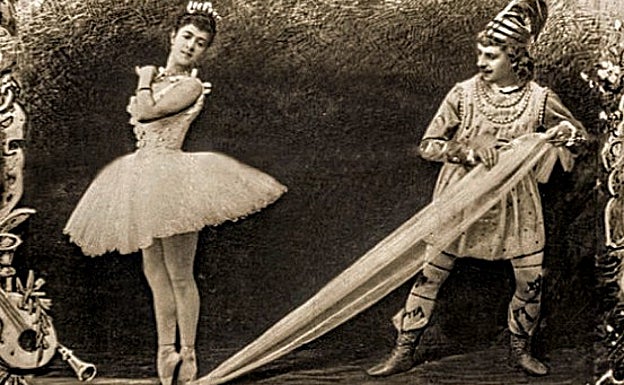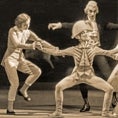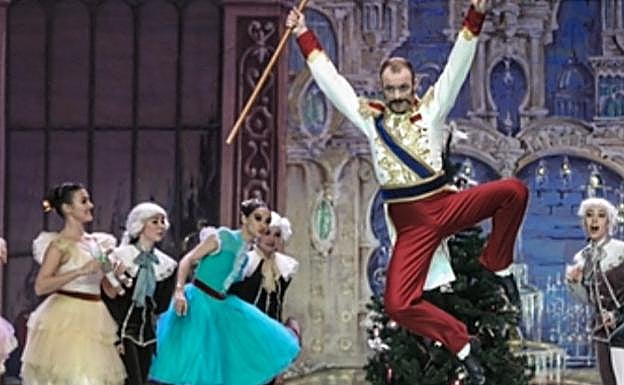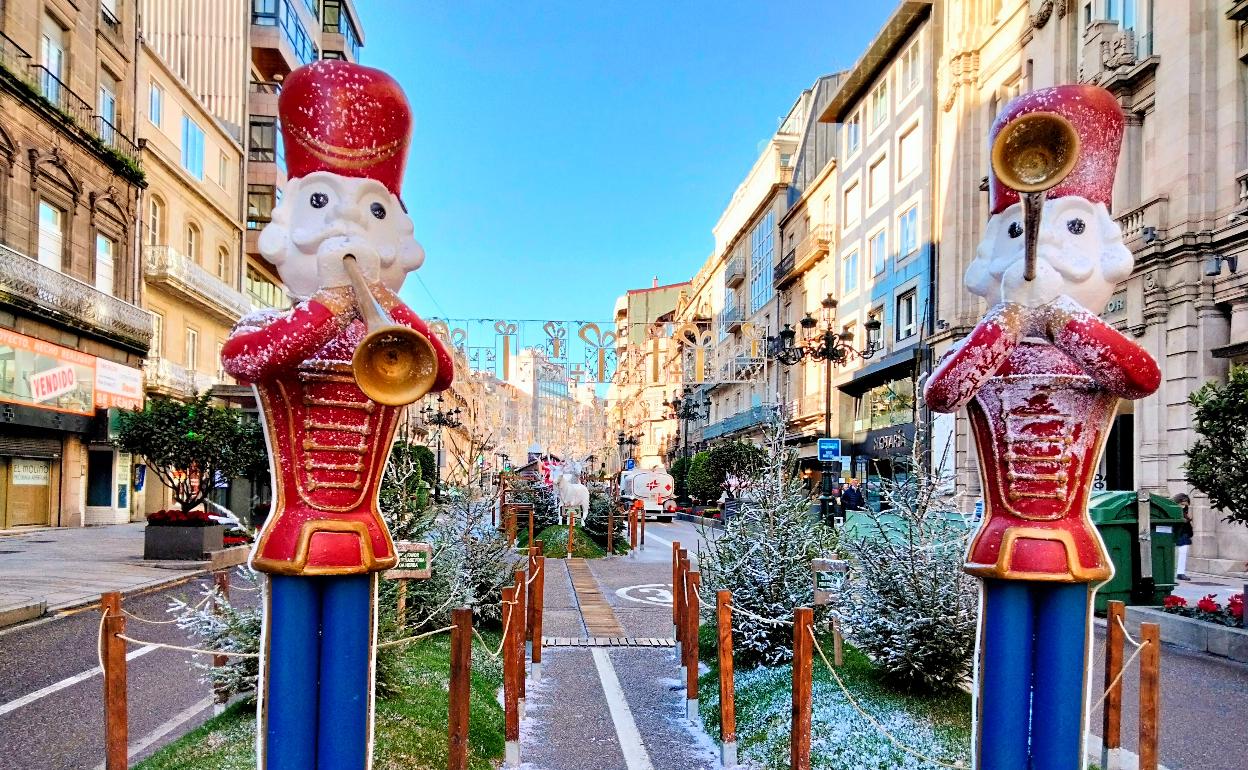The Nutcracker: 130 years on the world's stages
The famous ballet, which is being performed on the Costa del Sol this week, has experienced difficult times and criticism during its long life
ALEKK M. SAANDERS
Tuesday, 17 January 2023, 18:48
Working on the Nutcracker was apparently not easy for Pyotr Tchaikovsky. It is believed that for a long time he did not understand how to combine the complex symphonic music and the ballet.
The composer was apparently especially confused by the second act of what was supposed to be a fairly naïve divertissement. Producing a collection of dances without an overall plot or structure was a challenge for Tchaikovsky.
Unsurprisingly, he tried to get the ballet out of the way as soon as possible. It is thought that the director of the Imperial Theatres, Vsevolozhsky, even apologised several times to Tchaikovsky for having involved him in such a 'frivolous' project. The composer worked as hard as possible for him but eventually he had to ask to postpone the premiere for a year.

Tchaikovsky tried to get the ballet out of the way as soon as possible. It is thought that the theatre director apologised for involving him in such a 'frivolous' project
Tchaikovsky completed the score of the ballet in 1892. The premiere production of the Nutcracker had two acts and three scenes.
The first showed a celebration in the home of Marie's parents, the second showed the girl's dream in which the Nutcracker fought an army of rats and was transformed into a handsome prince in the finale, and the third showed the fairy-tale city where Marie and the Nutcracker found themselves. Incidentally, the question why the ballet featured rats as antagonists instead of mice, as in Hoffmann's fairy-tale, could never be answered for sure.
Innovations and foreign influences
In the score of the Nutcracker, Tchaikovsky used instruments that were new to Russian music of that time. One of them was a bell-piano - the celesta. It is believed that when Pyotr Tchaikovsky visited Paris, he discovered a new orchestral instrument, something between a small piano and a glockenspiel, and he was enchanted with the sounds it produced.
Additionally, the music of the ballet is generally rich in borrowed material. For example, the Arabian dance 'Coffee' is based on a traditional Georgian lullaby. It is believed that Tchaikovsky personally heard its melody during his visits to Georgia where his brother was vice-governor of Tbilisi.

Zoom

The German lyrical melody 'Grossvater Tanz' (Grandfather's Dance) can be recognised in the Parents' Dance. It dates back to the 17th century, and for several centuries was performed at the end of a wedding ceremony.
Criticism
In December 1892, the Nutcracker debuted at the Mariinsky Theatre in St Petersburg. The criticism was scathing. The level of artistry of the production fell far short of Tchaikovsky's sophisticated symphonic music. The reviewers questioned the talent of the composer. One of the critics described the ballet as “unimaginably tasteless” where “some of the dancers were dressed in brioche".

Pyotr Tchaikovsky noted in letters to friends and relatives that even outwardly the ballet looked garish and tasteless, and he recalled that it was difficult for him to look at the stage
Apparently, the composer himself was not impressed by the ballet either. Pyotr Tchaikovsky noted in letters to friends and relatives that even outwardly the ballet looked garish and tasteless, and he recalled that it was difficult for him to look at the stage. However, despite the ballet's resounding failure, the Nutcracker remained in the Mariinsky Theatre's repertoire for over three decades.
The Nutcracker abroad
The Russian ballet dancer, choreographer and teacher, Nicholas Sergeyev, who emigrated after the October Revolution, presented his version of the Nutcracker in London, in 1934. George Balanchine from the Mariinsky Theatre staged the Nutcracker in New York in 1954. His version of the ballet was performed every winter for more than half a century with consistent success.

The Russian ballet dancer, choreographer and teacher, Nicholas Sergeyev, who emigrated after the October Revolution, presented his version of the Nutcracker in London, in 1934
In 1967, the Nutcracker toured Europe. The ballet, in a more gothic version by the former Soviet dancer Rudolf Nureyev, was first performed at the Royal Swedish Opera in Stockholm, and then Nureyev's production settled at London's Covent Garden.
A few years later, the ballet was performed at the La Scala in Milan. When Nureyev became director of the Paris Opera Ballet Company, he started staging the Nutcracker there as well.
In 1976, another former Soviet dancer, Mikhail Baryshnikov, presented his version of the Nutcracker at the American Ballet Theatre in New York. Baryshnikov's Nutcracker premiered to critical acclaim.
Modern obstacles
Tchaikovsky's ballet is especially scrutinised nowadays. From time to time the ballet is accused of featuring a number of clichés about cultures and containing blackfacing. In Berlin, the Nutcracker was considered as offensive to Asians and not in tune with modern racial sensibilities. The ballet was finally cancelled due to a lack of political correctness.
Nowadays the ballet is accused of featuring a number of clichés about cultures and containing blackfacing
The Nutcracker has also been mixed up in politics. In Russia the ballet was under discussion in the context of the sexuality of the composer. Struggling with so-called LGBT propaganda, there were proposals to forbid everything produced by homosexual artists. Now, after Russia's invasion of Ukraine the ballet performed by Russian troupes is not welcomed.

Zoom

The Nutcracker can be seen in Spain this winter, thanks to the Ballet de Kiev, a company formed by dancer Ana Sophia Scheller. The tour includes Madrid on 16 January, Xàtiva on 18 January and Estepona, in the Teatro Auditorio Felipe VI, on 20 January. It then moves on to Altea and Ávila.
Another version of the Nutcracker is being staged by the Candlelight Concerts in Malaga city next month. The show is performed by two ballet dancers and a quintet at the Sala Unicaja de Conciertos María Cristina on 17 February.
